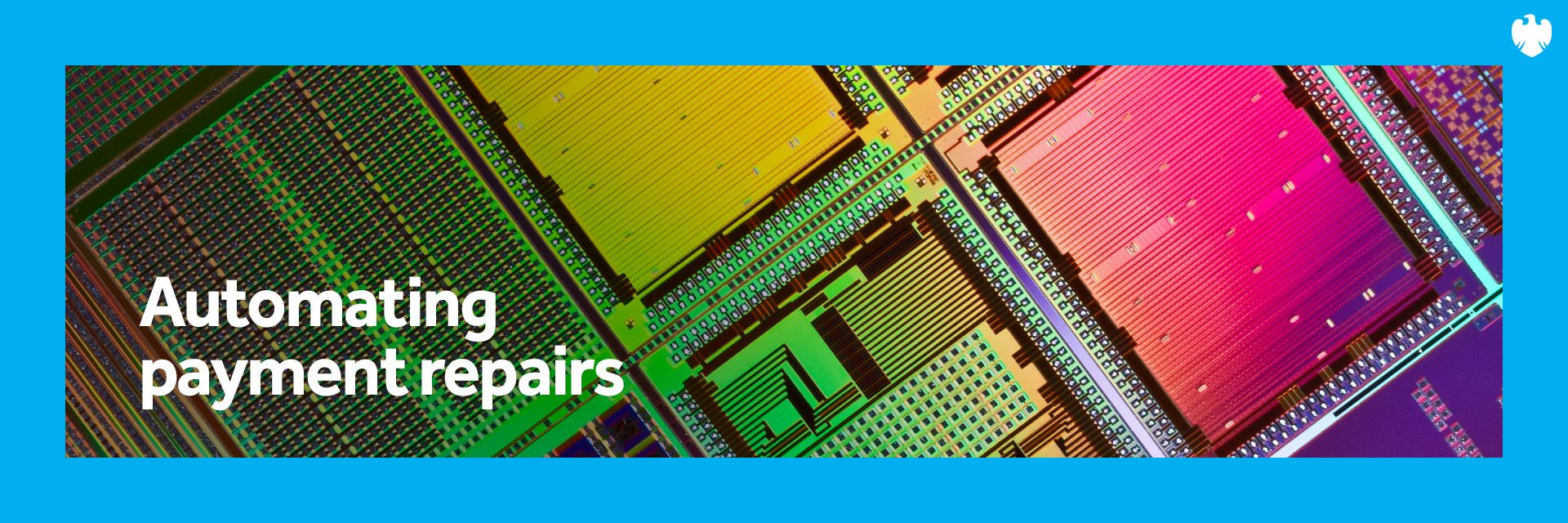
Automating payment repairs
Global Payment Services is the Group utility for payment processing (excluding Cards & Payments). On an average the team processes international payments of approximately £700 billion every day for settling 450,000 payments through Clearing House Automated Payment System (CHAPS), a real-time gross settlement payment system used by financial institutions for foreign and money market transactions.
Due to the team’s excellent Straight Through Processing (STP) rate built over many years, only less than 1% or roughly 5,000 payments fall out each day due to inadequate or misplaced data in the payment instructions. These payment instructions are then sent for what is known as repairs.
Automation through RPA and custom built pattern matching code
Repairing payments requires extensive manual validation of the payment instructions with public bank records or customer records held by Barclays, taking up a lot of time which not only delays the speed at which payments are processed for clients but also increases the operational risk. This was identified as a potential improvement opportunity following a review of the process by Payment Operations and the Corporate Optimisation team who were empowered to identify ways of improving straight through processing, client experience and mitigate any residual risk in the process. Once the teams were confident that the process presented a good candidate for automation, they then presented the challenge to the Process Automation CoE (PACE) to come up with an intelligent automation solution to replace the complex and time consuming manual activities associated with the repairs.
PACE showed real drive to build, test and implement an intelligent automation solution in six months working in collaboration with both Payment Operations and the Corporate Optimisation team successfully automating the repairs of five high volume payment repairs embedding automation as a reliable go-to solution to transform a relatively complex process.
The solution uses text matching code and robotic digital workers, which together are able to validate payment instructions with customer records and fix any resulting gaps. It is capable of working with variations in text, abbreviations, spelling mistakes and finding similarities/patterns which traditional Robotic Processing Automation doesn’t cater to.
Outcome
We now have 10 bots repairing around 1,250 payments per day, improving efficiency, enhancing resiliency and mitigating operational risk. The bigger business impact is an enhanced client experience through faster payment settlement with increased capacity, which has helped Global Payment Service cope with peak processing days for our customers across Barclays International and Barclays UK.
Early this year 99.6% of payment volumes were processed without human intervention. This automated solution is now being extended across further payment repairs, which will bring additional client and operational benefits throughout 2021.
Sundar Ganesh, Head of Process Automation CoE, says, “This is a great example of team stepping up to deliver a hyper automation solution for a complex problem which resulted in capacity creation and from a CoE perspective added to reusable component repository which is being leveraged in other solutions.”
As the economy enters a period of growth, payment volumes are expected to increase and having digital workers enables scalability and ensures Barclays is future-ready.